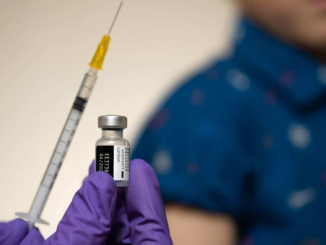
WPATH is a highly influential health organization that publishes the Standards of Care for gender transitions. Its guidance pushes doctors to prescribe puberty blockers, cross-sex hormones, and sex-change surgeries and is also a source for the politicians, doctors, and members of the media who cite it to claim puberty blockers simply pause puberty and are reversible.
{snip}
“I think when we just say, ‘Oh puberty blockers are just reversible and it’s a very noninvasive treatment,’ I would say it’s more invasive than often times the media makes it out to be or other people,” Dr. Scott Leibowitz, who helps lead the team that produces the Standards of Care, said in a video obtained by the Daily Caller News Foundation.
“There’s challenges with puberty suppression that we have to acknowledge, and that’s why it’s ‘reversible asterisks,’” he added. “One cannot be on puberty suppression endlessly. You get to a place where physiologically, we need hormones.”
However, Liebowitz also concluded that sometimes the decision to start a child on puberty blockers does not require medical evidence because of the “ethical human rights component,” saying, “We don’t rely on evidence for every single treatment we do in medicine.”
Another doctor spoke in an educational session about the effects of such drugs on bone density.
“Normally, puberty is the time of putting the calcium into your piggy bank. This is how I explain it to families. You’ve got a piggy bank for your calcium, and you better get it all in by 25 because at 25, you’re going to live off that piggy bank,” said Dr. Daniel Metzger, who is WPATH certified.
{snip}
“The puberty blockers slow that calcium accrual back into the bones quite a bit, back to the prepubertal level. We do know that even if you look at people now age 22, if you’ve done all of this and you’ve gone off and then you go back on the hormones that you want to have, you have not caught up by age 22,” he said, “which is about the time you need to fill up your piggy bank. This is a concern that not everybody is getting their piggy bank completely filled up with calcium.”
However, the most recent edition of the WPATH Standards of Care states that puberty blockers, or gonadotropin-releasing hormone agonist, GnRHa, administration, is “fully reversible” and is simply “regarded as an extended time for adolescents to explore their gender identity by means of an early social transition.”
Metzger went on to explain issues that could potentially arise with brain development, noting that the effects of puberty blockers on the brain development process were largely unknown and are not being tracked.
“Obviously teenagers, their brains are changing. They’re unwiring, they’re rewiring. And if we’ve started one kid unwiring and half rewiring, and then we changed their puberty the other way, and we’re unwiring, people have been trying to figure out what this does for kids’ brains,” he said. “They seem to do reasonably the same as their friends, but we’re not looking at their IQ and their learning ability and lots of other things.”
The doctor explained that the blockers can also affect future fertility, saying they stop development of sperm in boys and have unknown effects on girls’ eggs. Despite that, WPATH’s Standards of Care recommend employing puberty blockers as young as possible — as soon as a patient displays the first signs of puberty.
{snip}
“When you think about vaginoplasty, the creation of a vagina in an assigned male, you need tissue, genital tissue, to create that vagina,” Metzger said. “And if we are taking an 11-year-old boy, who does not have a lot of genital tissue and blocking puberty right there, we’re preventing the growth of the vagina for down the road.”
The Washington Examiner reached out to WPATH for comment.


